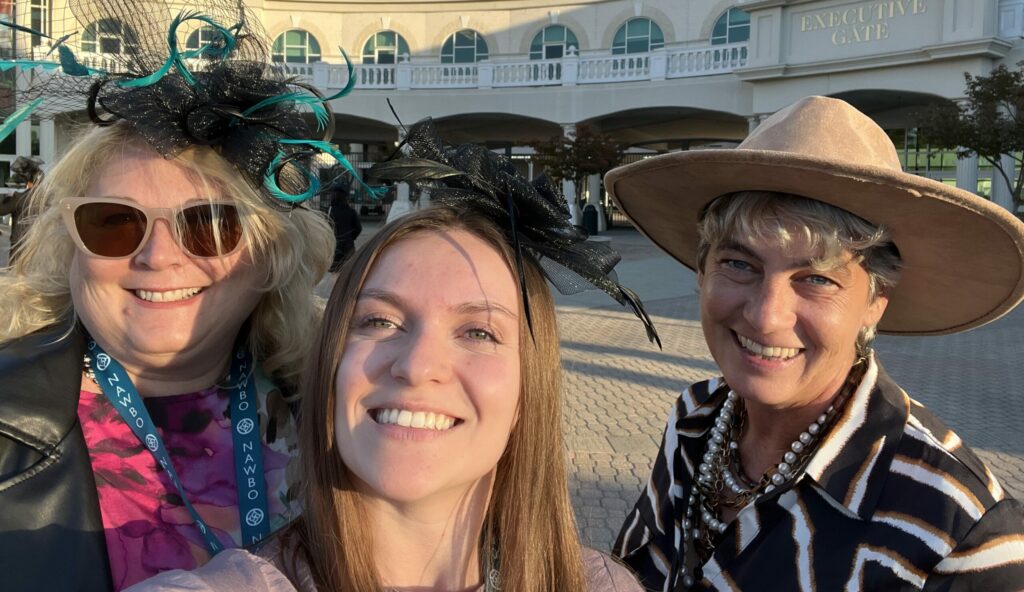Supporting staff and students during suicide awareness month.
While the thought of a school yard might bring you back to memories of playing with friends, Friday night football, or class assemblies, these are not the feelings or experiences that some people have when they think about their adolescent years. As education professionals we know that creating a comfortable and safe school environment is essential for the well-being and success of students. During this month, we must acknowledge a struggle that is unfortunately hidden in the shadows and running rampant within many young people.
The statistics are scary… UCLAHealth.org states that suicide is the second leading cause of death amongst individuals age 15 to 24. Since September is Suicide Awareness Month, we are dedicated to raising awareness and recognizing the pivotal role that teachers play in the lives of their students. Educators and youth-serving professionals hold a unique position in young people’s lives and are able to support, recognize, reach out, and provide essential support to those students who may be struggling with their mental health.
Know the Facts
- 41% of LGBTQ+ youth experienced suicidal thoughts in the past year alone. (TrevorProject)
- The ADAA states that nearly 32% of youth between the ages of 13 and 18 are affected by anxiety disorders.
- One third of students experienced poor mental health and over 40% felt persistently sad or hopeless. (CDC)
- Symptoms of anxiety and depression increased due to the pandemic. (KFF)
Poor mental health in young people leads to inconsistent attendance, falling behind with learning, disruptive behaviors, poor concentration, and can affect students’ relationships with their peers. Untreated, these behaviors can easily become a downward spiral and lead to bigger issues down the road and well into adulthood.
Know the Signs
Pay close attention to those who:
- Show little to no care about their futures,
- Express feeling hopeless,
- Start giving away their possessions,
- Lost interest in things they once loved doing,
- Show mood swings,
- Sleep more or less than often.
How can you help?
The Trevor Project has great resources for LGBTQ+ individuals and allies. They offer a chat, call, or text service for those who want a listening ear as well as a wide range of informative resources. They cover topics such as mental health, gender identity, suicide, and much more. Lastly, Trevor Project also offers their Trevor Space, which is an online community that offers a safe space for young people to meet like-minded individuals and make friends!
There is a suicide and crisis hotline where individuals can call or chat at anytime of the day. The line is free, confidential and was designed to destress and share resources for individuals and/or their loved ones. Whether you need someone to talk to, or you are worried about others, calling 988 will connect you with a professional that can assist. Learn more here.
The School Mental Heath Guide on Everydayhealthy.com is a great resource to explore as well. This article dives into the feelings and emotions that can occur at the beginning of the school year and will point out some possible warning signs of larger mental health issues. Author, Lauren Davis even adds some great tips to help your students transition back into the school year.
Also, we are also excited to share our updated catalog of brain-based strategy learning sessions from Still-Light Seminars LLC. This “No Sleeping In Class!” series is based on brain based strategies that support trauma impacted youth, and help equip educators and youth serving professionals to properly handle challenging situations.
Jim Still-Pepper, MA, a mental health expert with four decades of experience in working with at-risk youth, brings a wealth of knowledge to the table. He has played a big part in providing valuable insights to schools, districts, and parents over the years.
Jim’s fun and dynamic teaching approach will inspire your staff to initiate positive transformations. Through active learning methods, participants will be ready to seamlessly integrate one or a few of these new brain-based strategies into their classrooms or programs right away!
In collaboration with Jim Still-Pepper, EnvisionEdPlus offers a wide range of topics that can be delivered as inspirational keynotes, full-day workshops, or half-day sessions. While each topic can be presented as a standalone session, we highly recommend that school and district leaders align these training opportunities with the Six Exemplary Professional Learning Criteria outlined in ESSA (Every Student Succeeds Act). Sessions can be in-person or live virtual. Several of Jim’s training sessions are also available on-demand through PDPlus too.
Reach out to us today to see how we can create a menu of learning sessions fit to your school’s needs!
Some courses include:
Each person is unique and each person has different filters when it comes to learning. Learn how to identify the types of filters students use in the learning process. Discover how to reach the different filters so that they can teach more effectively to each and every student.
Understanding and Applying Heuristics. Our brains constantly think, but sometimes our thoughts can be tricked. sme tmes r brains hlp us mke snce of a confusing wrld; and sometimes the world confuses us. Understand some of the typical ways our brains can be tricked and explore what to do about our biased brain.
Explore the impact on children when their parents carry a diagnosis. Learn practical steps to understand and manage the dynamics of difficult parents. Discover ways of motivating parents to create positive change. New skills will help learners engage and encourage parent participation.
The standard anger management approach tries to teach people to stop getting angry. Well if that technique worked, then there would be no anger problems. This approach teaches people to mediate their angry emotions, then there will be no need to stop.
Having boundaries and learning to set them and keep them are an important life skill. Many times trauma can make it hard for youth to set and maintain appropriate boundaries. Helping kids learn these skills can draw a positive line in the sand (so to speak).
Whether the conflict is between you and another, you and others or you and yourself, conflict occurs a lot, like weeds in a garden. And like weeds, the better the soil, the more they flourish. Conflict is not a sign of a bad relationship, but rather is an indication of the environment. For many youth, these skills are readily modeled, in the negative. Teaching positive conflict skills is vital.
Understand the common childhood mental health diagnosis and explore the implications for teaching. Get your own questions answered AND learn what questions you should be asking mental health professionals.
Explore the cultural aspects that surround us, and impact our interactions with our students. Explore how culture operates, and discover ways of working with diversity in more productive and positive ways. If we can navigate the cultural mix, we will be in a better position to help students. The focus here is not on race or ethnicity, but rather on mental health diversity. Depending on schedules, there is also a panel of experts who have come through the system and can offer their insights. There is an additional fee to cover the expenses of the panel.
Explores ways teachers can help kids deal with the deadly emotion of anger. From de-escalation to behavior management, find practical steps and solutions to this touchy problem.
Whether it is an all-out battle of the wills, or button-pushing, or manipulation, “Tug of War” will explore the battles parents and kids often engage in. We will look at ways of disengaging without creating more problems. Through this interactive workshop, learn how to identify power sources, discover ways of disengaging and develop discipline authority.




